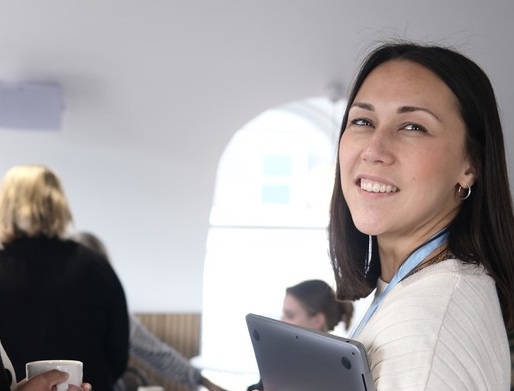UKCharityCamp 2024: How can charities embrace failure when every penny counts?

Charities must be able to experiment to take full advantage of digital solutions and deliver maximum value for their beneficiaries
UKCharityCamp went from strength to strength in its second year. Hosted by dxw and Neontribe in Birmingham, the unconference was attended by many amazing charities, big and small, who’d braved the weather and travel disruptions to contribute.
We started the day by pitching topics to form our agenda before breaking into discussions. I was particularly struck by the conversation I joined around how charities can create a ‘sandbox’ to experiment with digital solutions. Particularly when they are under such scrutiny around the use of charity funds (rightly so).
“Don’t let perfection be the enemy of good”
There was broad agreement in the room that charities are usually trying to nail it first time when it comes to developing digital solutions. Senior leaders are often very risk averse. There doesn’t feel like there’s any space to experiment and learn. And this is hampering the ability to use digital to its full potential.
There was a collective desire to work on shifting charity cultures and understanding among the donor-base. To deliver maximum benefit to beneficiaries in the long run, we need to value progress over perfection and recognise the evolutionary nature of digital services.
Reporting frameworks can be a challenge
It was clear from the discussion that there’s a lot of variability between funders and how they manage their processes. In some cases, it’s been possible to craft digital development proposals with higher level outcomes that inherently build in more flexibility and scope for pivoting as necessary. In other cases, it’s much more prescriptive and difficult to deviate from pre-determined specifics, regardless of any learnings along the way.
Those in the conversation felt that, unsurprisingly, projects worked best where funders had a high level of capability and understanding around agile and digital product development. And that charities needed to be bolder in challenging funders on their reporting frameworks, supporting them to build their capability in this area for mutual benefit.
Creating the conditions to experiment
The discussion converged around 3 principles to help facilitate a test and learn environment within charities:
- Cultural context is key
Understanding the appetite for and blockers around experimental work is essential to frame your activity and boundaries around it. Sometimes it can be the limits of reporting frameworks that are holding senior leaders back, or just plain fear of the optics around failure.
- Language makes a difference
We agreed that good communication was imperative to bringing stakeholders with you. So setting up the idea of testing and learning, and the benefits it will bring, before starting the work is a must. The way the experimentation is positioned internally makes a huge difference to stakeholder mindset too. There are of course situations where bold language like ‘failure’ is impactful, but to be honest, is that really what we’re talking about here? If something doesn’t go as predicted, it’s probably more useful (and accurate) to talk about this in terms of research and/or learning (and saving money in the long run).
- Uncertainty is the elephant in the room
Risk aversion naturally comes from a fear of uncertainty that experimentation brings. Finding techniques to address specific anxieties can help decision makers feel more comfortable with an experimental approach. For example, using consent-based decision making can be a way of helping stakeholders feel a sense of control by contributing to decisions on how to move forward with learnings, without the process becoming ‘decision by committee’. It also helps to embed the principle of ‘good enough’ rather than ‘perfect’.
Culture change takes time
It’s very clear that ‘test and learn’ needs to be part of a charity’s DNA – it must be a cultural priority. This isn’t going to happen overnight. But by starting small and demonstrating the value of this approach in contained projects, teams can send signals about how things could be. Others will want to get in on the action. The dial will start to shift.
It was my first time at UKCharityCamp and I was really impressed by the talent in the room. I have no doubt that together we can start to make this change happen, and can’t wait to see where we are next year.